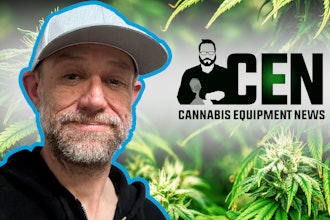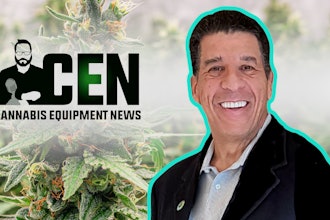Editor's Note: Download the audio version below and click here to subscribe to our newsletter.
This week Thomas Winstanley, VP of Marketing at Theory Wellness, joins the Cannabis Equipment New podcast to discuss how this independent MSO in the northeast survived the COVID-19 shut down and came back stronger than ever.
Thomas Winstanley has a background in marketing and advertising. He has nearly a decade of experience promoting brands like Tampax and Rémy Martin Cointreau. While his background is diverse, it provides insight into understanding various marketing and operational challenges.
Winstanley was a cannabis enthusiast when he first experienced the legal Colorado market and was captivated by being able to walk into a store and purchase the product.
In July 2018, he joined Theory Wellness. The company was medical-use only at the time with a pair of stores, but Winstanley wanted to work for a small, independent operation that was still cutting its teeth. It has been a fast and sometimes challenging four years.
The company has evolved a lot since Winstanley came onboard.
As Theory moved into recreational sales, its store in Great Barrington, MA, was just the sixth recreational dispensary on the east coast and the closest to New York City. The company transformed overnight and has been playing catchup ever since.
Initially, Winstanley and the rest of the Theory team had their apprehensions as the store approached its opening. What if nobody showed up? The store became an overnight sensation.
Now, Theory operates six stores, three medical in Massachusetts, two recreational in the state, and three recreational dispensaries in Maine – some of the stores are co-located. And the company has plans to continue to grow.
Being a relatively small, independently owned and operated MSO, Theory remains nimble and capable of responding quickly to market needs. In addition, the company is vertically integrated, controlling the supply chain from seed to sale. Still, they have made a lot of changes.
The company has shuffled through multiple pre-order systems and learned a lot of on-the-fly inventory optimization as a result of the explosive demand in Great Barrington. For example, sell-through rates were so high that they had to set limits to make sure they never ran out of product. Customers also faced long wait times, which forced the company to get smarter about communication and understand transaction times. For example, Winstanley uses Twitter as a tool to post wait times. They also didn’t want customers to feel rushed, so they sent consultants to the lines to help customers make informed decisions before they reached the front door.
When the COVID-19 pandemic hit, Theory had recently opened a new store in Chicopee, MA. It was only open for five weeks when the business was deemed non-essential and shut down for two months. Winstanley says it was some of the most challenging times the company had faced but a large catalyst to drive pre-order sales.
Theory reopened on Memorial Day, and the customers had a lot of pent-up demand. The night the company turned the lights back on, Theory had some 4,000 customers on the website waiting for ordering to be turned back on.
The e-commerce evolution has forced Theory to ask some hard questions and try to predict the future of cannabis commerce. Winstanley thinks it could look a lot like Amazon’s e-commerce behemoth (in fact, it could just be Amazon), but the industry will undergo many changes along the way.
The most significant change will be federal legalization, and to prepare for an e-commerce evolution, Winstanley stresses that brands need to differentiate to stand apart in the digital marketplace.
Despite the shift to e-commerce, Winstanley thinks brick-and-mortar shops will always have a place in the industry, but he’s not convinced they have an identity yet. Will dispensaries of the future look more like a museum, a wine shop, a pharmacy, or some combination of the three? Stores will remain important because the industry has so much innovation that consumers will still want to go to the source and get more information.
Now, Theory Wellness is expanding into new market segments with the launch of its infused seltzer brand Hi5, which has presented new challenges because the company has become a beverage manufacturer and distributor.
Winstanley remains optimistic for the cannabis industry, especially as New York is about to come online and other states in the northeast discuss legalization. Federal legalization could be closer as regulators keep a close eye on New York, which will likely be one of the biggest cannabis markets in the country.
As new markets open up, so will new opportunities for Theory Wellness, but the company plans to grow methodically, make informed decisions and remain competitive and independent.
Please make sure to like, subscribe and share the podcast. You could also help us out by giving the podcast a positive review. Finally, to email the podcast or suggest a potential guest, you can reach David Mantey at David @cannabisequipmentnews.com.






















